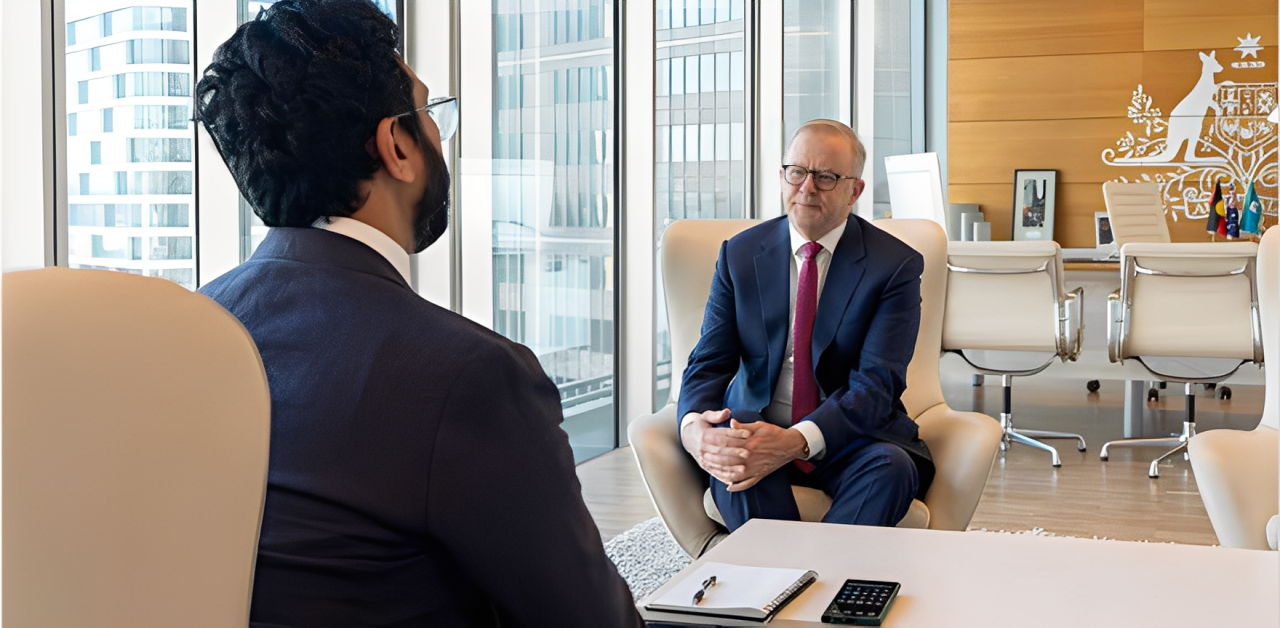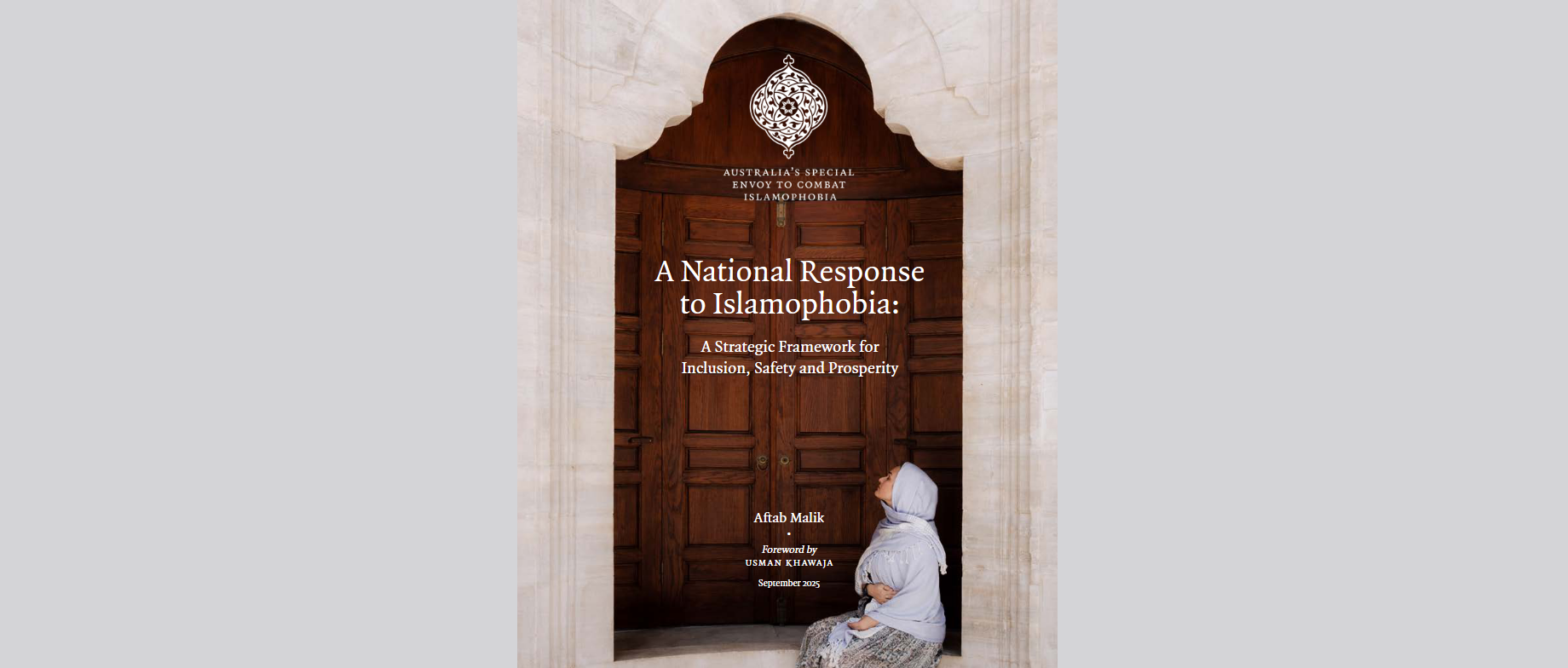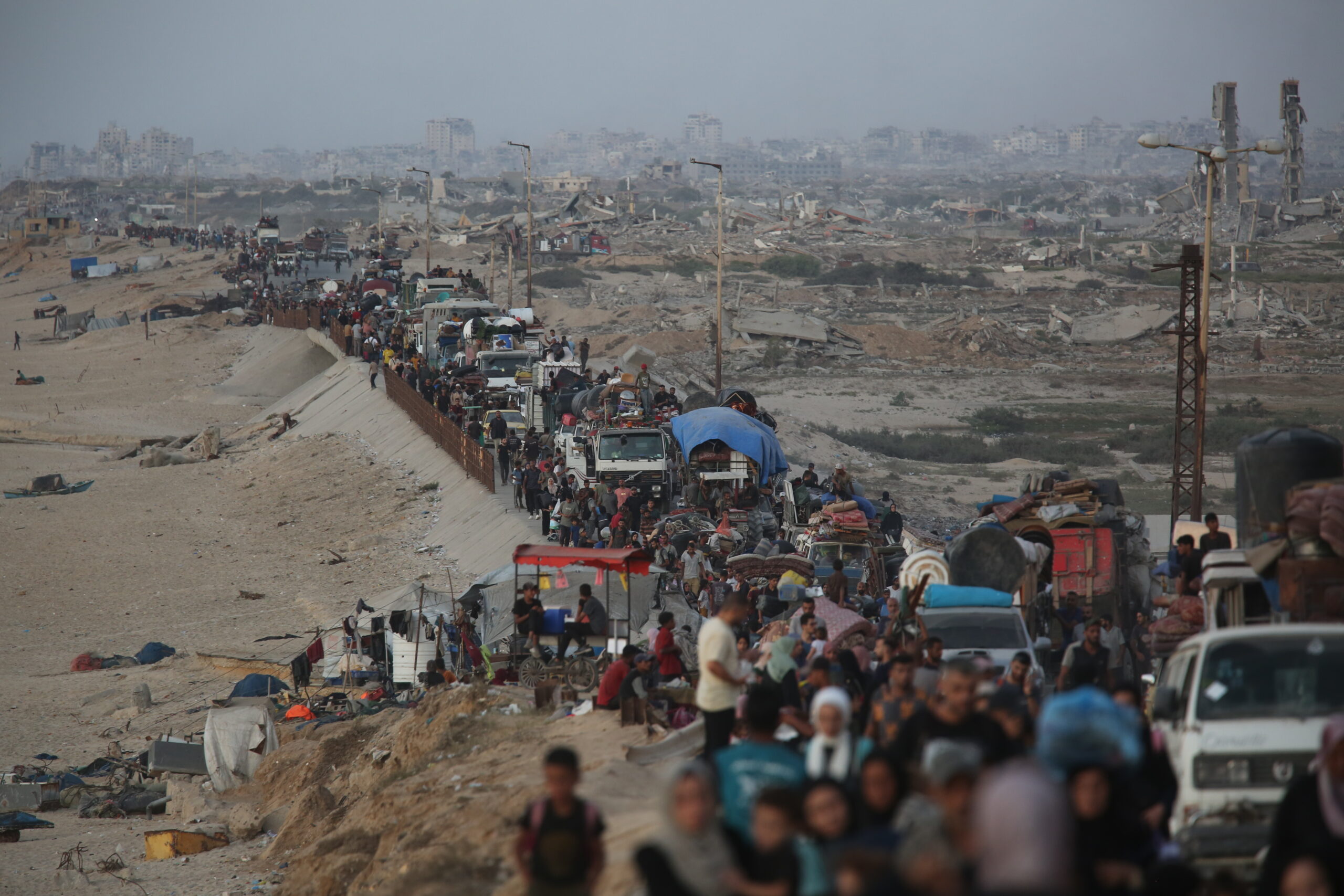
Elham Asaad Buaras
A landmark independent report has revealed that Islamophobia in Australia has reached “unprecedented levels,” becoming so widespread and normalised that many incidents go unreported. Presented to the government on September 12, the findings prompted Prime Minister Anthony Albanese to pledge a thorough consideration of a new national strategy to combat anti-Muslim hatred.

The government’s Special Envoy to Combat Islamophobia, Aftab Malik, delivered the 60-page report, A National Response to Islamophobia, at a Sydney media briefing attended by Prime Minister Albanese and Minister for Multicultural Affairs Anne Aly. It details the pervasive structural, institutional, and interpersonal discrimination faced by Muslim Australians.
Malik stated that Islamophobia in Australia has been a persistent issue, one that is “sometimes ignored, at other times denied, but never fully addressed.” He highlighted the targeting of vulnerable community members, noting, “We have seen public abuse, graffiti… we have seen Muslim women and children targeted, not for what they have done, but for who they are and what they wear.”
The analysis identifies the Gaza conflict as a significant turning point that triggered a sharp escalation in anti-Muslim sentiment, with data from the Islamophobia Register showing a 150 per cent surge in verified in-person hate incidents and a 250 per cent increase in online abuse by November 2024.
The report contextualises this spike within a longer history of anti-Muslim backlash in Australia, citing events like the September 11 attacks, the 2005 Cronulla riots, and the 2019 Christchurch massacre.
To address this crisis, the report puts forward 54 recommendations. These include holding individuals and institutions accountable for hate speech, ensuring victims have access to robust support services, and launching nationwide education programs in schools and the media. It also emphasises building social cohesion through intercultural exchange and trust-building initiatives.
PM Albanese responded to the findings by affirming the government’s commitment to protecting all Australians from religiously motivated hate. “The targeting of Australians based on their religious beliefs is not only an attack on them, but an attack on our core values,” he said. He confirmed his government would “carefully consider” the recommendations and reaffirmed his support for religious discrimination legislation, while acknowledging the need for bipartisan consensus.
Albanese noted the government has already initiated several measures, including establishing a national database to track incidents and providing $25 million in support for grassroots projects, community organisations, and enhanced security for mosques and Islamic schools.
Minister Anne Aly praised the report for giving a powerful voice to Muslim Australians and underscored its broader significance for national unity. She pointed to the government’s dedicated Office of Multicultural Affairs and Cabinet representation as evidence of a serious commitment to fostering inclusion.
The Australian Federation of Islamic Councils (AFIC), the country’s peak Muslim representative body, welcomed the release of the report and strongly endorsed its findings. AFIC said the document offered a sobering confirmation of what Muslim communities have long experienced— that Islamophobia is a deeply embedded, systemic issue undermining the safety, dignity, and participation of Muslims in public life.
“This report must not become another symbolic gesture or talking point,” said AFIC President Dr Rateb Jneid. “It provides a clear roadmap for government action. We expect to see these recommendations implemented without delay, with urgency and seriousness equal to that given to any other form of racism or hate.”
AFIC highlighted specific needs, including stronger legal protections against religious discrimination—such as amending Section 18C of the Racial Discrimination Act—consistent recognition of anti-Palestinian racism, and improved hate crime treatment via independent oversight, not expanded police powers. It also backed a unified national anti-racism framework across education, media, politics, and public institutions.
AFIC urged the government to commit to a clear timeline and provide the resources to implement the recommendations, warning that anything less would betray communities bearing the daily burden of Islamophobia. In his concluding remarks, Malik expressed hope that this moment would be seen as a historic turning point.
“Throughout the drafting process, I have sought to appeal to the enduring ethos of the Australian fair go for all,” he said. “I hope that we can look back… and see it as a turning point for addressing Islamophobia and turning words into meaningful action.”
The release of this report, which aligns with the National Anti-Racism Framework, coincides with a separate government review into antisemitism, reinforcing a broader national effort to combat religious hatred and strengthen social cohesion. AFIC said it would closely monitor the government’s response and continue advocating for the rights, safety, and inclusion of Muslim Australians.
Feature photo: Aftab Malik, Australia’s Special Envoy to Combat Islamophobia, speaks with Prime Minister Anthony Albanese. Source: Report: A National Response to Islamophobia,


